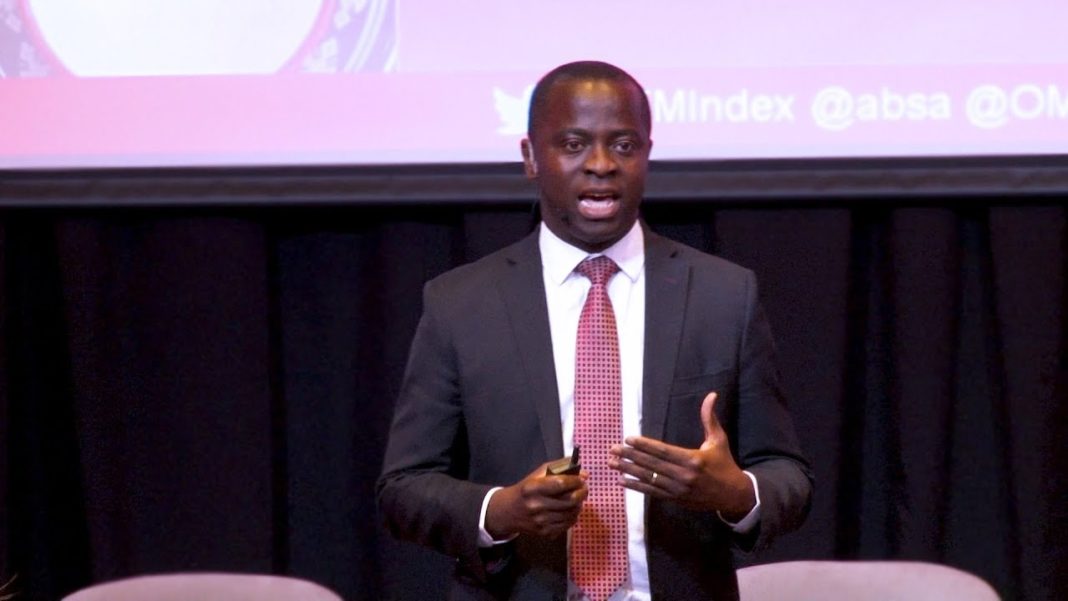By George Asante
African countries are making commendable progress to reform and liberalise their financial markets. This is key to financial inclusion, economic development and capital raising.
The extent of this progress was revealed in the 2018 Absa Africa Financial Markets Index, which ranks 20 countries in terms of the stage of maturity, transparency and investor friendliness of financial markets. Launched in October alongside the International Monetary Fund meetings in Bali, this is the second edition of the index, independently prepared and published by OMFIF.
It focuses on six core pillars: market depth; access to foreign exchange; market transparency; capacity of local investors; macroeconomic opportunity; and legality and enforceability of standard financial markets master agreements.
Overall, South Africa was ranked first on market depth; legality and enforceability of standard financial markets master agreements; market transparency, tax and regulatory environment; capacity of local investors and macro-economic opportunity. However, it came second to Kenya on access to foreign exchange.
The index is an important indicator of ranked countries’ progress on and commitment to financial market reforms. Without these, economic development and accessing domestic and foreign capital is difficult, if not impossible.
For Africa to grow, it needs a broad, all-inclusive financial market that facilitates investment. The index is an important tool that offers a blueprint on bolstering the continent’s financial markets, pricing investment and competing equally for the available funding needed to propel development in the region.
Peter Matlare, group chief executive officer and CEO of Rest of Africa at Absa, agrees, saying the development of well-regulated, deep and liquid financial markets should be at the top of policy-makers’ development agenda. ‘The index facilitates a meaningful debate about the maturity and accessibility of Africa’s financial markets,’ he says.
Some countries, like Botswana, Kenya, Nigeria and South Africa have made steady progress with their financial market reforms. But others, such as Ethiopia and Mozambique, lag behind, particularly in the development of stock exchanges, which are essential to raising capital through listings.
Ethiopia lacks a securities exchange, apart from one for commodities. There are no equities listed on Angola’s exchange, and both Cameroon and Mozambique have a market capitalisation of less than 5% of GDP. South Africa is the only index country where the total value of listed equities is more than $100bn, at $1.1tn.
Africa’s financial markets need accelerated reforms, principally because they can be used to raise capital to meet its significant funding needs, particularly for infrastructure projects. The continent’s transformation requires significant resources. For example, to achieve universal energy access by 2025, as much as $55bn annually must be raised in domestic and international capital. As much as $50bn is needed to fund African infrastructure projects.
While some African countries are implementing policies to bolster regional stock market integration and encourage expansion, they are hamstrung by low liquidity, limited prospects for listings and a lack of product diversity. These present significant obstacles to capital market growth. Only South Africa, Botswana and Ghana have a market capitalisation greater than 100% of GDP, while in 14 countries it is lower than 50%.
But it is not all doom and gloom, as the index illustrates. Several countries have made progress to create more transparent and well-regulated markets, supported by improving tax environments. This is vital for attracting foreign investment, encouraging domestic participation and aiding market development.
Equally impressive is increased financial inclusion through better design, implementation and regulation of savings institutions. This has widened opportunities for people in these countries to access capital markets. Additionally, countries have implemented policies that have increased the size of assets held by local investors, creating opportunities to develop financial products and enhance liquidity.
To accelerate financial market reforms, there is a need for sustained economic growth in many countries. This requires policy initiatives to attract investors by, for example, paying more attention to infrastructure and trade diversification while ensuring financial transparency. Such steps are necessary to facilitate Africa’s economic transformation.
George Asante is Head of Global Markets excluding South Africa at Absa.




